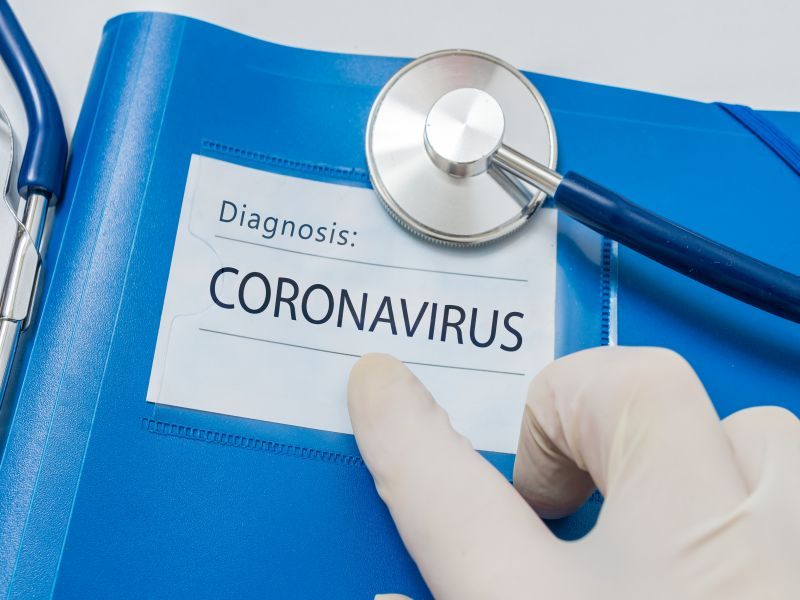FRIDAY, Feb. 5, 2021 (HealthDay News) — An unfortunate Connecticut man apparently suffered through two separate bouts of COVID-19 four months apart, adding to evidence that reinfection can occur after natural immunity wanes, doctors say.
The 43-year-old Hispanic man had a life-threatening first infection with COVID in April, suffering from respiratory failure so bad he wound up on a ventilator, said Dr. Onyema Ogbuagu, an associate professor at Yale School of Medicine.
The man also needed blood thinners to treat clots caused by COVID and developed a series of severe complications that included a MRSA infection, ventilator-associated pneumonia and kidney failure.
“He really had a rough time, and was in the hospital for over a month, but luckily he survived and was able to be discharged,” said Ogbuagu, senior author of a report on the case published Feb. 5 in the BMJ.
The man tested positive for COVID during his hospitalization, but had four negative tests after discharge, Ogbuagu said.
He wound up back in the hospital in August, admitted for shortness of breath. There, the man tested positive again for COVID.
The second time around, he spent a week in the hospital. Doctors treated him with remdesivir.
“His overall clinical outcome was real mild disease” during his second infection, Ogbuagu said. “He cleared the virus pretty quickly.”
Such reports of second infections aren’t “particularly surprising with COVID-19, as immunity from infections with most coronaviruses we know of is temporary,” said Dr. John O’Horo, an infectious disease hospitalist with the Mayo Clinic in Rochester, Minn.
“The good news is that vaccination appears to provide longer-lasting immunity, and most individuals who get reinfections tend to get less-severe infections, but cases like this one highlight why someone who’s already been infected still needs to adhere to the same safety measures as those who have never been infected,” said O’Horo, who wasn’t part of the study.
The problem with relying on a COVID infection to provide natural immunity is that milder cases produce weaker antibody protection against future infection, Ogbuagu said.
Even a severe case of COVID could produce inadequate immunity in some people, particularly those who have conditions that affect their immune response, he said.
That’s why vaccine immunity trumps natural immunity, and why even those who have had COVID are being asked to get vaccinated, Ogbuagu said.
“The immunity people get from vaccine should last longer and hopefully be protective for longer than natural immunity, just because natural immunity wanes,” he said.
The new and more infectious COVID variants emerging from South Africa and the United Kingdom are challenging the immunity provided by vaccines, and they’re even better able to slip around the natural immunity resulting from an infection by the original coronavirus strain, Ogbuagu added.
“If there are new variants circulating, the people who are infected with prior strains, you can imagine that they barely have significant protection against a new strain,” he said. “The past antibody response may not be so relevant to a new circulating strain.”
From this case, Ogbuagu and his colleagues proposed a checklist for detecting potential COVID reinfections, including the use of genetic sequencing to see if the second infection is from a different strain.
“We shouldn’t always assume that if people have had COVID they’re protected, so that if they come again with a respiratory syndrome you exclude COVID from the diagnosis,” Ogbuagu said. “Even in a COVID survivor, if they come in with a respiratory syndrome or any of the classical signs and symptoms of COVID, we need to pay attention to reinfection.”
More information
The U.S. Centers for Disease Control and Prevention has more about COVID-19 reinfections.
SOURCES: Onyema Ogbuagu, MBBCh, associate professor, Yale School of Medicine, New Haven, Conn.; John O’Horo, MD, MPH, infectious disease hospitalist, Mayo Clinic, Rochester, Minn.; BMJ, Feb. 5, 2021
Copyright © 2026 HealthDay. All rights reserved.

